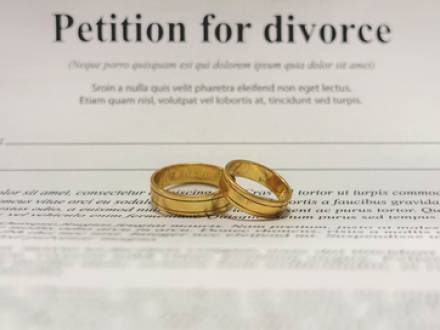How an Illinois Divorce Affects Immigration Sponsorship
 Immigration and divorce can intersect in unexpected ways. In the state of Illinois – and across the United States – U.S. citizens and lawful permanent residents sponsor their spouses for green cards. There are many requirements to sponsor an immigrant spouse, along with ongoing financial obligations. But what happens when a couple with one sponsored spouse divorces?
Immigration and divorce can intersect in unexpected ways. In the state of Illinois – and across the United States – U.S. citizens and lawful permanent residents sponsor their spouses for green cards. There are many requirements to sponsor an immigrant spouse, along with ongoing financial obligations. But what happens when a couple with one sponsored spouse divorces?
Many couples are surprised to learn that divorce rarely ends the sponsor’s duty to financially support his or her immigrant spouse. Immigration sponsorship creates legal responsibilities that can outlast a marriage. Both parties may potentially face legal and financial consequences. To ensure your rights are protected as you plan your next steps. It is important that you speak to a knowledgeable Lombard, IL family immigration lawyer.
What Are the Requirements for a U.S. Citizen to Sponsor an Immigrant Spouse?
To sponsor an immigrant spouse, a U.S. citizen must be at least 18 years old, live in the United States, and meet specific financial requirements. The sponsor must demonstrate an income of at least 125 percent of the federal poverty level for his or her household size. Form I-130 must be filed to petition for the spouse, along with Form I-864, the Affidavit of Support.
The sponsor must also prove that the marriage is legitimate and that it is valid in the place where it was conducted. Documentation of income and assets (Tax returns, bank statements, and property appraisals) must be provided, along with photographs, and any other proof of a shared life.
What Is the I-864 Affidavit of Support?
The Affidavit of Support is a legally binding contract in which a U.S. citizen or lawful permanent resident sponsor agrees to financially support an immigrant spouse, ensuring that the immigrant will never be a financial burden on the government. The sponsor must usually prove he or she has sufficient income to financially support the immigrant.
These obligations generally do not end until the immigrant being sponsored becomes a U.S. citizen, has departed the U.S. with no lawful permanent resident status, or accrues 40 qualifying quarters of work. The I-864 Affidavit of Support is a legally enforceable contract signed by the sponsor.
Does Divorce End Sponsorship?
An Illinois divorce does not automatically terminate sponsorship; the I-864 obligation survives divorce. Even if the couple divorces, the U.S. citizen sponsor is still required to financially support the immigrant until the immigrant becomes a U.S. citizen, has worked for approximately 10 years, leaves the U.S. permanently, or dies. State courts – like an Illinois family court – cannot cancel an I-864 agreement, as it is a federal contract.
Can the Immigrant Spouse File a Support Claim?
The sponsored immigrant spouse can sue his or her sponsor in federal or state court to require the sponsor to continue financial support as promised in the I-864 agreement. Illinois state family courts can potentially address both spousal support and I-864 financial support. However, if this issue is not carefully argued by the U.S. citizen’s divorce attorney, the sponsored spouse could be awarded both (This is known as "double dipping").
If a green card has already been issued to the sponsored spouse, his or her permanent resident status will likely continue. However, the divorce can affect the conditions of residence if the marriage has lasted less than two years at the time the green card is issued. If the green card application is still pending, the green card process can be derailed, and the sponsored spouse must pursue VAWA self-petition, cancellation of removal, or new sponsorship.
Contact a Naperville, IL Family Immigration Lawyer
As an immigrant spouse being sponsored, you should know your rights under I-864. If divorce jeopardizes your status, you should speak to a Lombard, IL immigration attorney from Mevorah & Giglio Law Offices. Attorney Mevorah has been serving the needs of immigrants throughout Northern Illinois for more than four decades. To schedule your free consultation, call 630-932-9100.
 English,
English,
 Spanish,
Spanish,
 Polish,
Polish,
 Urdu
Urdu













 Make a Payment
Make a Payment



